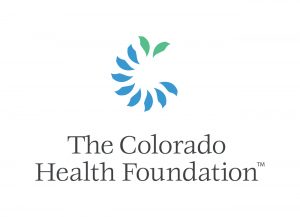Widgetized Section
Go to Admin » Appearance » Widgets » and move Gabfire Widget: Social into that MastheadOverlay zone
Colorado Health Foundation survey finds majority of Coloradans impacted by COVID-19 stress
The Colorado Health Foundation and Healthier Colorado on Thursday released results from a statewide survey that found a majority of Coloradans have had their mental health impacted by stress and worry from the coronavirus outbreak.

Here’s a press release on those survey results:
Today, Healthier Colorado and The Colorado Health Foundation released new results from Colorado’s only publicly available statewide survey on the coronavirus outbreak. The survey measures and explores the concerns, needs, experiences and attitudes of Coloradans on the coronavirus outbreak.
Key findings:
- A majority of Coloradans say the stress and worry from the coronavirus outbreak has impacted their mental health;
- More Coloradans are worried about paying for necessities of daily living like housing, food, utilities and prescription drugs;
- Coloradans overwhelmingly feel the government should do more to make health care more affordable, support individuals who cannot afford food and housing, and provide paid sick and family leave; and
- Most people feel there are significant changes ahead to the way we live, socialize and work, even after the coronavirus outbreak is under control.
Mental health is a prominent concern for Coloradans during the coronavirus outbreak. Fifty-three percent of people reported that their mental health has worsened due to the stress and anxiety of the pandemic. Moreover, women (61%), people ages 18-29 (69%), people who have lost their income (62%), and people without insurance (69%) all said they’ve experienced a negative impact to their mental health. Nearly half of all Coloradans (46%) expect to experience long-term mental health impacts because of the coronavirus outbreak. Among respondents that feel the coronavirus has had a negative impact on their mental health, 67% say they are very or somewhat concerned about the lasting, negative impacts to their mental health.
“I would say that it affected my post-traumatic stress disorder and my anxiety.” – Female, 35-39, Mesa County
“Being a 60-year old black man, I have a high-risk category to die from this disease. I’m nervous whenever I leave my house.” – Male, 60-65, Denver
“I’ve felt very trapped and alone.” – Female, 18-29, Weld County
People are more worried about supporting themselves and their families since the coronavirus outbreak. A 16% increase since before the outbreak, 35% of people said it was very or somewhat difficult to pay for necessities of daily living. People who lost a job or income (+28%), people living on low incomes (+25%), people with no health insurance (+22%), and single women (+21%) all reported greater challenges paying for necessities like housing, food, utilities and prescription drugs.
People are eager for the government to do more to support people affected by the pandemic. Sixty-five percent of people feel that the government should do more to provide affordable health care. Additionally, Coloradans feel the government should do more to assist Coloradans in paying for food (61%), paying for rent and mortgage (59%), supporting people experiencing homelessness (58%) and ensuring paid sick and family leave (54%). The survey also found an overwhelming majority of Coloradans are worried that people won’t receive necessary supports and services. People were either very or somewhat worried that help would not be available for those who are homeless or who are struggling to pay their rent or mortgage (81%), for essential workers to ensure they have personal protective equipment such as masks (76%), and for programs to support people who are hungry and not able to afford food (76%).
Just 28% of people believe things will go back to normal when the coronavirus outbreak is under control, while 65% believe there will be significant changes. Urban women (74%), people on Medicaid (80%), African Americans (72%), and those on low incomes (71%) all felt that the way we live, socialize and work will change significantly as a result of our experience with coronavirus.
“This crisis is an unfortunate, perfect storm for our mental health,” said Healthier Colorado’s executive director Jake Williams. “Our survey shows that a majority of Coloradans are experiencing a negative impact to their mental health, and that they want our government to do more to provide the economic and health support that can bring relief. It is critical that policymakers consider the intertwined consequences of this pandemic, including the increased stress people are experiencing.”
“The coronavirus pandemic has unveiled the shortcomings in our country’s systems. While Coloradans are fearful about their mental and physical health, as well as their future, they are still optimistic,” said Karen McNeil-Miller, president and CEO of The Colorado Health Foundation. “As we develop local and statewide responses, we can’t let them down. Government can do more and we need to ensure no one is left behind. Our systems and policies need to do more for those most impacted by this pandemic and ensure we bring health in reach for all.”
For interviews, please contact KPiccola@healthiercolorado.org or amontoya@coloradohealth.org. A copy of the survey results and crosstabs is located at Healthier Colorado.
Survey Details:
- • The survey sampled the adult resident population of Colorado based on the 2019 U.S. Census estimates (age 18 or older)
- • The poll interviewed 1,000 Coloradans plus an over sample (100) of African American adults
- • The overall margin of error is +/- 3.1%


